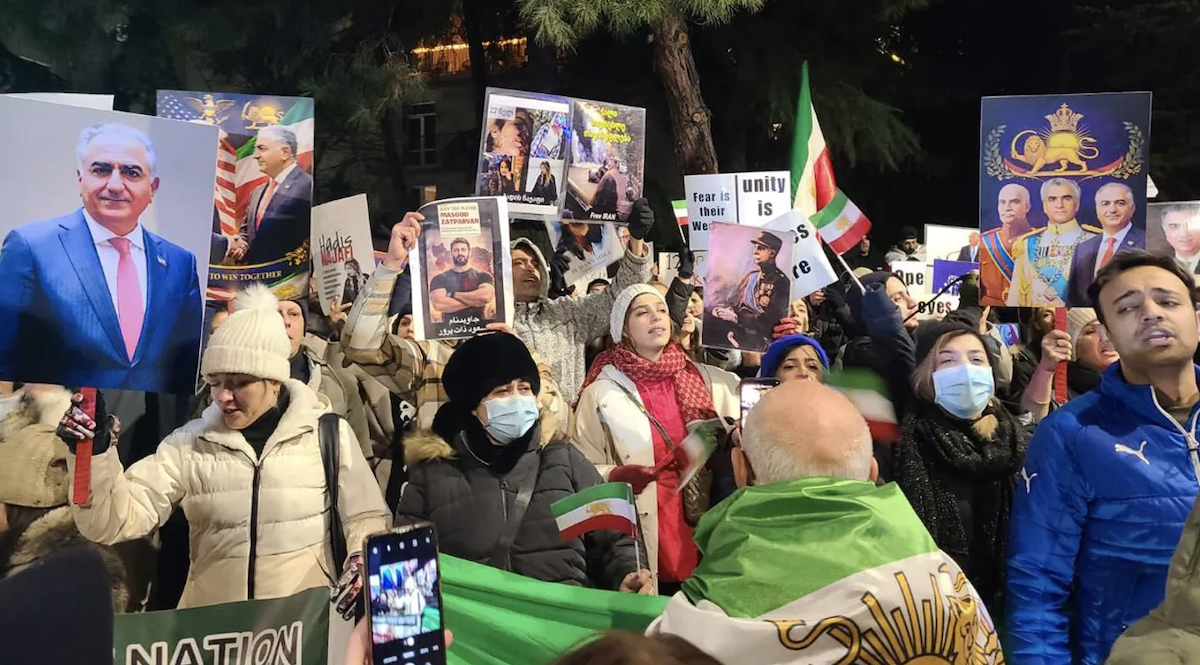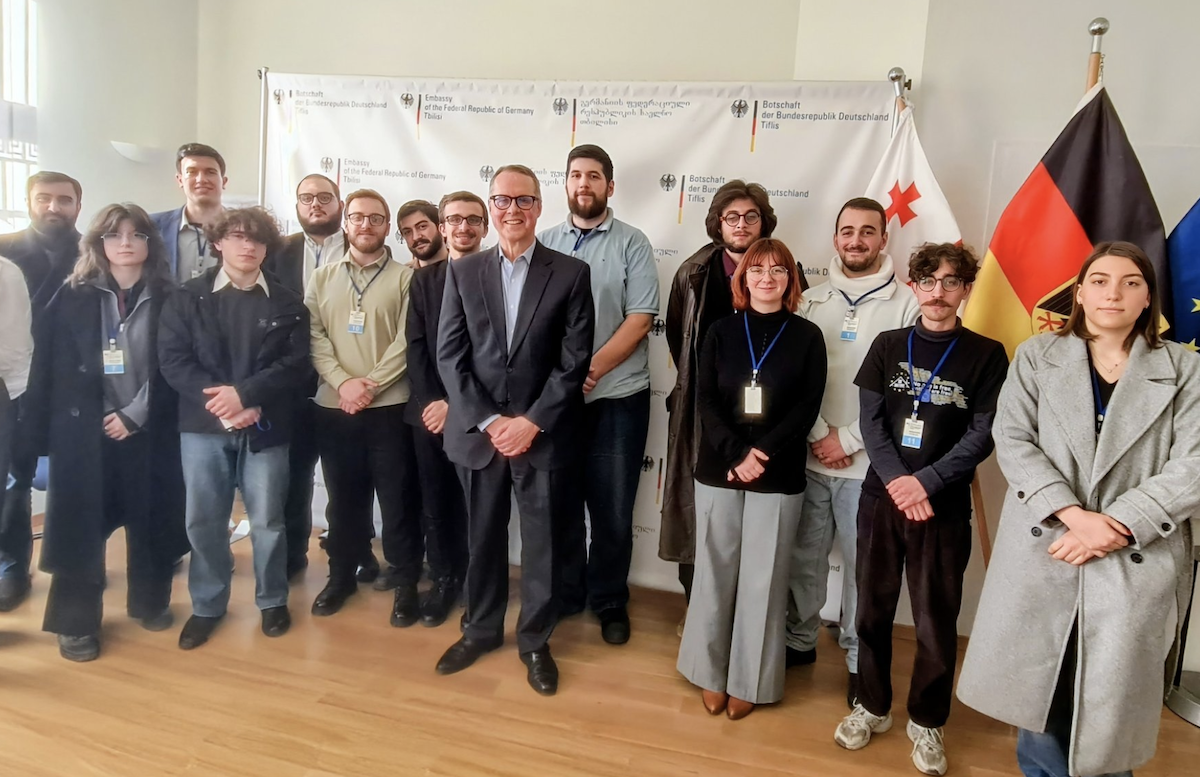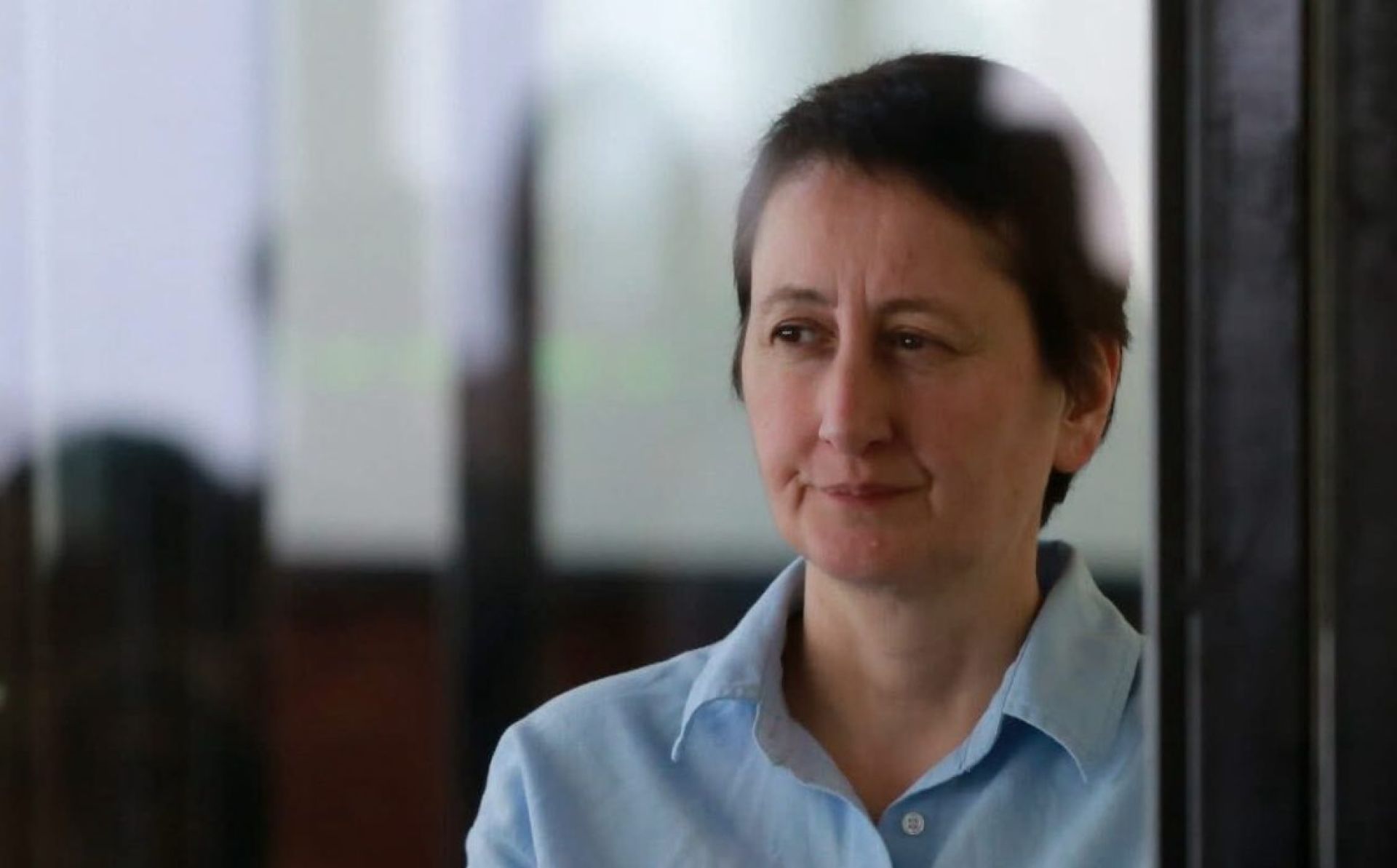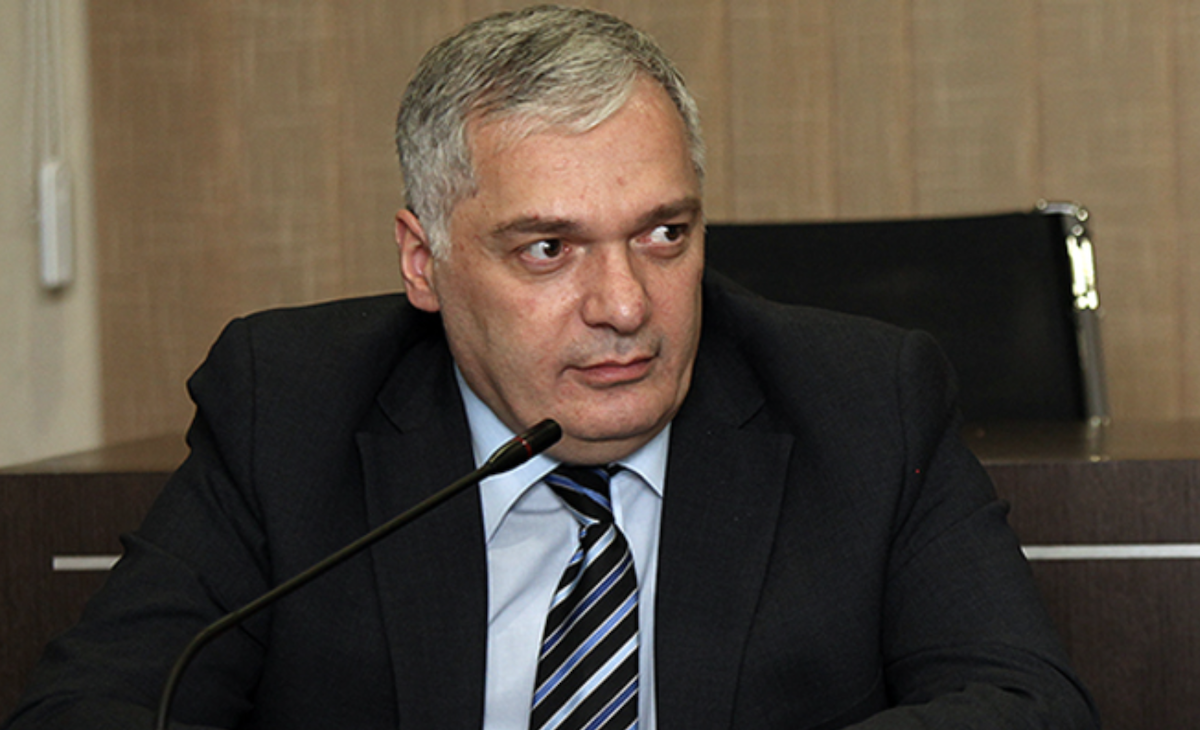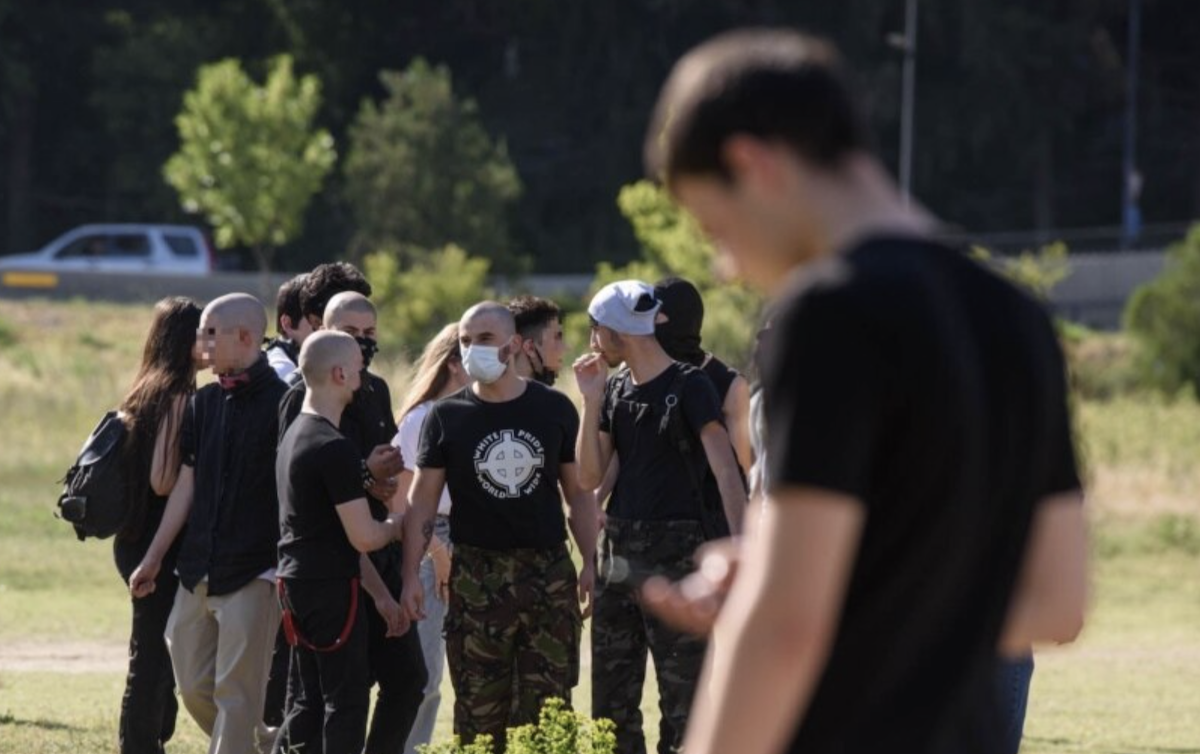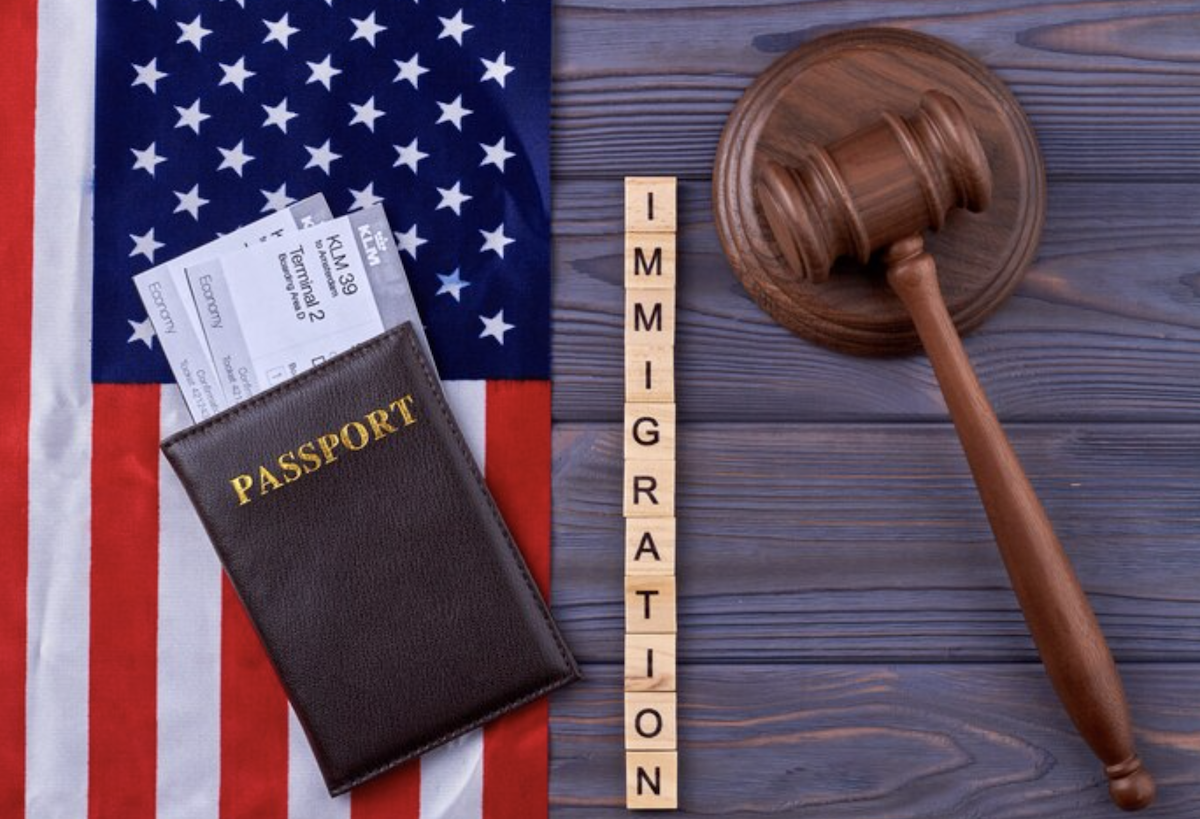"There is hope that people will change." Solidarity with the trans community in Georgia
Transgender individuals were some of the most vulnerable during the coronavirus pandemic.
Rejected by their families, who had lost their earnings and homes, they were literally on the verge of starvation. However, even such a conservative society as Georgia did not remain indifferent to their misfortune—not only activists, but also representatives of the church came to their aid. This being said, the state is still standing on the sidelines. Human rights activists say the government still does nothing to protect transgender people or help them survive.
Desperation
On the morning of April 30, 2020, after the state of emergency had been declared and the streets of Tbilisi were almost empty, two women approached the city hall. Each held a bottle of lemonade in her hands. In one of them there was gasoline, in the other—vodka, for courage.
They were Madonna and Gabriela—two transgender women. For more than a month after the state of emergency and strict quarantine were imposed, they were literally starving.
Madonna was the first to douse herself with gasoline and set herself on fire. Gabriela says she was only unable to follow suit because the police stopped her.
Madonna survived and was treated in the hospital for several weeks with a second-degree burn.
These women took this desperate step as an act of protest and in order to attract the attention of the authorities.
“First, I wrote in a group (a Facebook group that supports the transgender community) that I wanted to set myself on fire, then Madonna called me…And we announced that we would set ourselves on fire, and waited for the journalists,” Gabriela recalls that day.
- Living surrounded by hate. LGBT individuals and their parents in Georgi
- Stories from LGBT soldiers coming out in the Ukrainian army
- Bikers, priests, right-wingers – ‘Family Purity Day’ instead of int’l day against homophobia
Gabriela left home twelve years ago. Since then, she has not had any communication with her family. Only her twin brother, who died three years ago, spoke to her.
Now Gabriela is completely alone.
She rents an apartment in Tbilisi and pays for it with money earned from sex work. With the onset of the pandemic, she was left without a source of income.
“When the curfew was imposed, I could not go out or work from home, as clients could not come over either. We were locked in. Nobody paid any attention to us. It was very difficult for us, as we were left without any income,” she says.
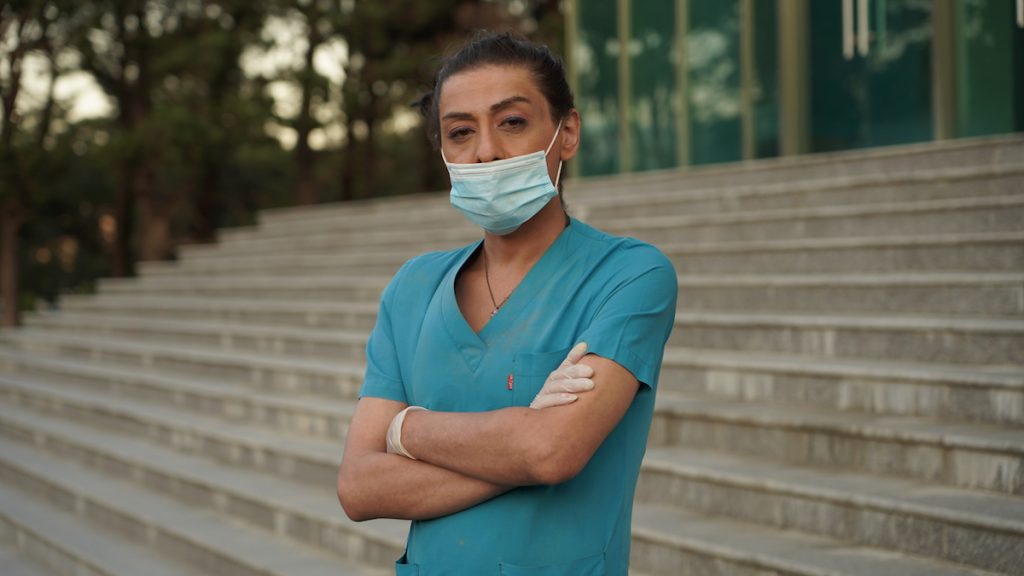
Gabriela’s story is far from unique, and in fact mirrors the lives of dozens of other Georgian transgender women during the pandemic.
Transgender people are the most vulnerable and oppressed group in Georgia.
Their rights are violated with almost every step they take—they find it difficult to find a job because of their identity, they cannot get an education, they can’t start a profession, and are constantly subjected to physical violence. Many transgender women try to avoid public transport, so as not to become a target for aggression.
Most of them were abandoned by families and they do not have their own housing.
Because of this, most transgender people engage in sex work in order to survive and pay for housing.
Staying locked up during the pandemic proved considerably more difficult for them than for others.
“When I couldn’t pay, the landlady demanded that I vacate the apartment. I stayed on the street, without any hope that anyone or anything would help me,” says Anna, who works in a beauty salon. Due to the pandemic, her salon was closed for almost four months.
Help and solidarity
Today, with the quarantine behind them, transgender people say civil activists saved their community from starvation.
They set up groups on social media to help raise money and other forms of assistance for trans people.
One such group on Facebook was opened by Nata Peradze, an activist and volunteer in the Partisan Gardeners of Tbilisi movement. She gathered a group of 27 members of the trans community and began to collect money, food and other necessities for them.
“Some people only gave one lari [about 30 cents]. But the important thing was that there was solidarity,” she says.
Peradze says that transgender people did not violate the rules of quarantine during the pandemic, and remained at home.
“From the very beginning, the girls behaved very responsibly and were left completely without livelihoods,” says Peradze.
Another activist, Nata Talikishvili, raised funds for a group of 73 transgender people in need.
“We had a lot of work to do during the quarantine. On the one hand, the violence towards this community has risen, but another problem has become more dire: they may not be beaten, they may simply starve to death.”
Soon, non-governmental organizations and religious representatives joined the process.
For example, the Georgian Evangelical Baptist Church handed out food to transgender people and offered them temporary accommodation.
However, the most unexpected assistance came from an Orthodox priest. The Georgian Church is a very conservative institution, which is especially intolerant of the LGBT community.
According to Nata Peradze, an Orthodox monk contacted her, wishing to remain anonymous, and donated food and necessities to transgender people.
“I still have goosebumps,” recalls Anna after receiving a bundle from a priest. “Just imagine, there were even cigarettes and chocolate! This story gave me confidence that life was worth living, and that there is hope that people could change. This one package has become more valuable for me than a hundred others would be.”
Is there any hope for the government?
With the help of the money collected on Facebook, some members of the trans community were able to rent an apartment for the month and given food and other necessities.
But soon, the activists’ resources ran out, and it became necessary for the government to get involved.
Activists organized several online meetings about this issue with the Prime Minister’s Human Rights Advisor, Lela Akiashvili.
Nata Peradze says the adviser to the prime minister “approached the matter responsibly,” but could not provide any concrete assistance:
“This seems to be the first time that an adviser to the prime minister and transgender people got together for an online meeting. However, the only thing that was achieved was that the government put us in touch with the Red Cross, from where the girls received one-time assistance. No other steps have been taken. In the end, transgender women overcame the pandemic, but the state provided no help whatsoever.”
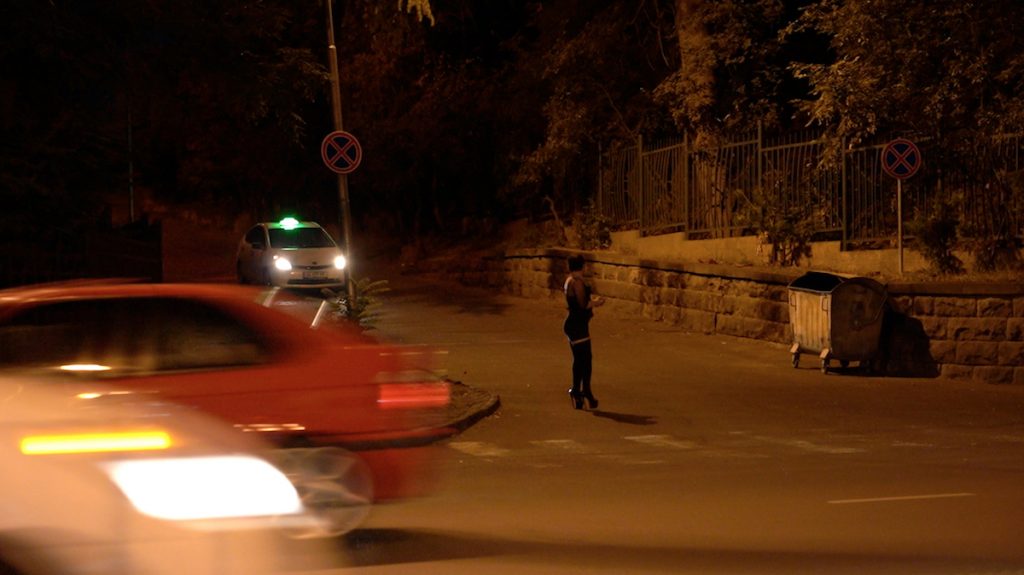
Lela Akiashvili herself says that the state was unable to help transgender people on a systematic basis due to a lack of data:
“For obvious reasons, they do not want to reveal their identity or share personal data. All this made providing support much more difficult. During the pandemic, it once again became clear how cautious the transgender community is in this matter.”
Transgender people in Georgia have many reasons to hide their personal data, but this is primarily due to the fact that the state does not adequately protect their rights and safety, NGO representatives say.
Physical violence against transgender people is common in Georgia.
In recent years, three transgender women have died:
Sabi Beriani was killed on November 10, 2014. The attacker first stabbed her nine times and then set fire to her apartment.
On February 4, 2016, a transgender woman, Bianka Shigurova, was found dead in her apartment. The listed cause of death was a gas leak.
On November 22, 2016, Zizi Shekiladze, a transgender woman, died after nearly forty days of being in a coma from being stabbed in the head and throat.
Police often use violence. For example, in May, transgender woman Cecili Tsomaia stated that she had been brutally beaten by police during the curfew. She also posted photos of her injuries on Facebook.
The Georgian public defender stated that the human rights situation among transgender people was in a bad state during the pandemic.
According to Deputy Ombudsman Ekaterina Skhiladze, the support received by the transgender community from the state was ineffective.
“These people were completely excluded from the state’s anti-crisis social support plan, and the assistance they received was fragmented and one-time, which does not solve the problems that exist in this community. State policy should support these people more actively and protect their rights,” says Skhiladze.
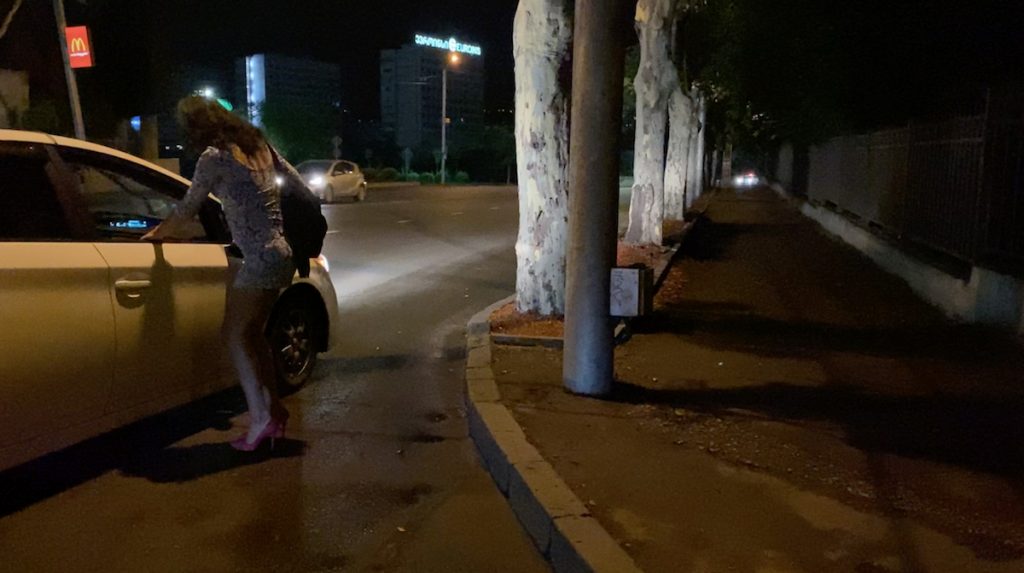
Ira Silantyeva, a social worker at the NGO Movement for Equality, says that to the government, transgender people practically do not exist. Their rights are not protected anywhere—neither on the street, where they often become victims of ridicule and violence, nor at home, when parents often simply drive them out onto the street.
“The state does not offer them hormone therapy services, endocrinological or psychological services, asylum or, most importantly, the possibility of changing their gender status on identification cards. The main reason transgender women get involved in sex work is that they have practically no right to appear in public during the day,” Silantyeva said.
She says there are several main problems facing the community, and if solutions are found, this will greatly improve the lives of transgender people:
“First of all, is the right to change the gender indicated on their ID card. They are women, but their passport reports that they are men. Because of this, it is very difficult for them to find a job.”
It is also important to create appropriate legislation to protect transgender people from domestic violence.
“For example, if a family evicts a transgender person from their home and they end up on the street, the law cannot protect them. They can be transferred to a shelter for victims of domestic violence for one month, and that’s all. There is no policy of trying to bring them back into society,” says Silantyeva.
Keti Khutsishvili, a social worker from the Women’s Initiative Support Group, which has also been working on community issues for a long time, says that trans people being rejected by their families is one of the main problems.
Those who are rejected by their families at an early age, she says, are doomed to sex work and a hard life:
“If a person realizes their identity at an early age and is rejected by their family, they automatically lose the opportunity to get an education. When you have limited access to education at an early age, everything becomes inaccessible. “
“The pandemic has shown how vulnerable the community is”
The public attempt at self-immolation by Gabriela and Madonna brought results. Gabriela did not receive any help from the state, but the private clinic Vivamed hired her to work as a nurse. They signed a contract with her for two months.
“I agreed and I’m happy. The team at work is very good, and I am friends with everyone. They taught me everything, how to measure blood pressure, give injections. We all help each other here.”
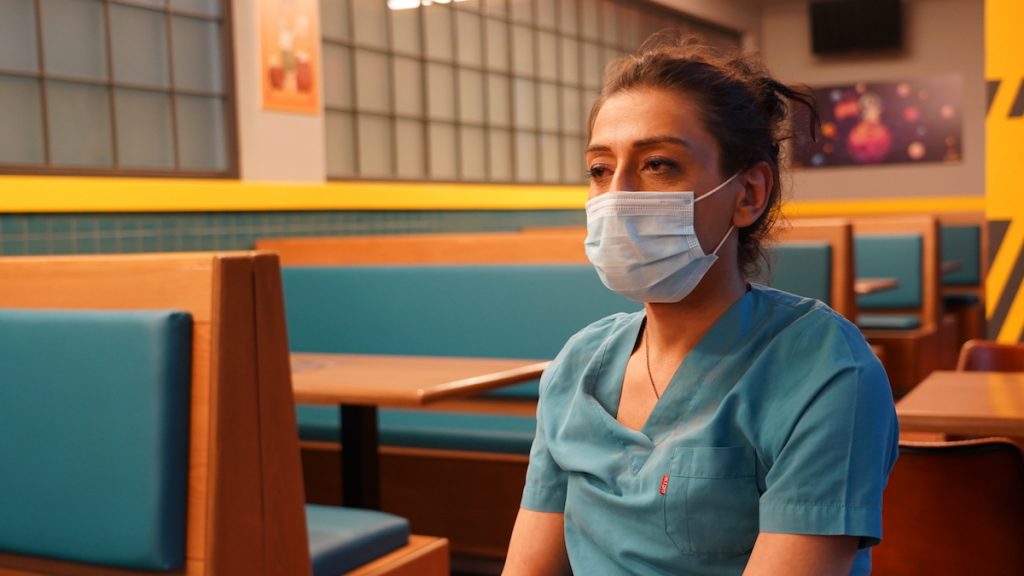
However, with the end of quarantine, most transgender women are returning to their old lives. Nata Peradze says that the pandemic has shown how vulnerable they are in Georgia:
“Until now, we didn’t even know about their existence. We now know they exist and need help. Now is the time for the state to take effective steps. One-time assistance, work, and gifts won’t change anything. The girls went back to sex work. And in groups, they discuss who has mace for self-defense, and access to the internet to post live video in case they are attacked, etc. “
The Georgian Ministry of Internal Affairs does not report cases of violence or attacks on transgender people in a different category than other types of violence. In 2019, the Georgian prosecutor’s office opened a criminal case against twelve people for violence and threats against transgender women.
However, too many cases of violence and threats never reach the prosecutor’s office. This is just another example of how the voices of people who need help, social integration, and the freedom to express their sexual identity, remain unheard.












